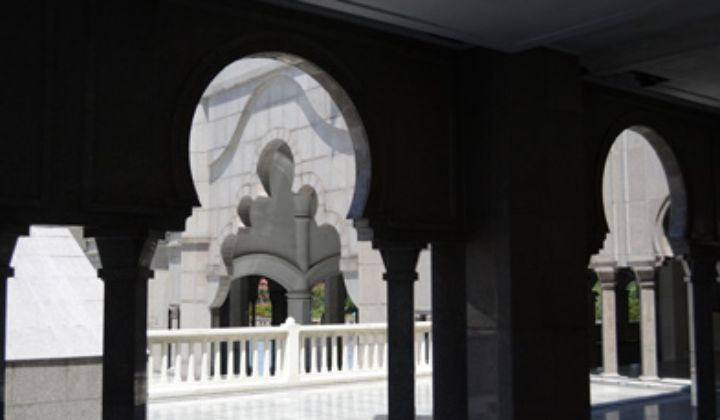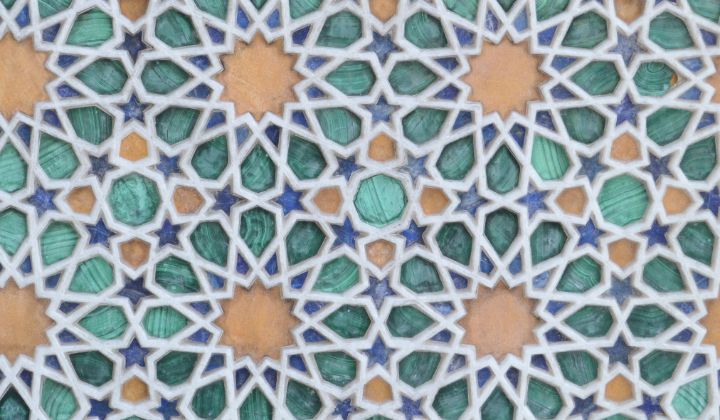Shariah is based on principles and regulations to organize the life of individuals in two main aspects; their relationship with god and their relationship with other individuals. Fiqh (Jurisprudence) is considered as a part of whole named Shariah. Fiqh is divided into two main divisions:
- Ibadah, which means acts of worship, address issues such as prayers, fastings, Zakat, Hajj, Purity-related matters etc.
- Mu‘amalat, which means transactions, addresses issues such as financial transactions, personal issues, inheritance, sanctions etc.
In addition, there are five main Shariah provisions: Wajib (duty), Mustahab (desirable), Mubah (permissible), Makruh (disgraceful) and Haram (forbidden). Muslim jurists, based on the study of Quran texts and Sunnah, concluded that the main purpose of Shariah regulations and provisions is to protect religion, self, lineage, intellect and property. These are called the five Maqasid.
Shariah provisions are based on four sources, two of them are considered as primary, the Quran & Sunnah and the other two are considered as secondary, Consensus (Ijma ‘) and Analogy (Qiyas).
1- Holy Quran
Scholars identify Holy Quran as follows “It’s the words of Allah revealed to his prophet Mohammad (PBUH), which reading is an act of worship, begins with Surah Al-Fatihah and ends with Surah Al-Nas.
2- Prophetic Narrations (Sunnah)
Sunnah is every act, saying and tacit approval of the prophet Mohammad (PBUH). Sunnah is considered and primary source of legislation due to instructions of Holy Quran. Many Verses commanded Muslims to follow the Prophet (PBUH) guidance such as in Surah Al-Hashr, Verse 7: “So take what the Messenger assigns to you, and deny yourselves that which he withholds from you. And fear Allah, for Allah is strict in punishment.”
Sunnah is divided into three divisions:
- The Prophet's Sayings.
- The Prophet Acts.
- The Prophet acceptance of others' a sayings or acts.
3- Ijma‘ (Consensus)
The consent of Muslim Jurists on a specific issue in a specific time, such as Tarawih Prayer in a congregation (Jama‘ah). Although it is difficult to achieve Ijma‘, the modern jurisprudential academies are playing important role in this regard.
4- Qiyas (Analogy)
In modern issues, of non-equivalence in the past, Muslim scholars in such case, seek for a common similarity between the discussed matter and similar matter that its provision in Shariah is known. Shall such a case be found, then, the modern issue gets the same provision. Drugs is a clear example of Qiyas, since it shares the same mental effect with alcohol, and since alcohol drinking is strictly forbidden in Shariah, then drugs are also forbidden (Haram).
Islamic banking is defined as banking system which is in consonance with the value system of Islam and governed by the principles laid down by Shariah law. The underlying principles of Islamic banking are Shariah compliance, contractual rights and obligation accorded to the transacting parties and the fairness and transparency in these dealings and business activities.
The core value of Islamic banking is to promote economically productive activities, genuine trade and business transactions. Activities that involve interest (riba), gambling (maisir), excessive ambiguity (gharar) and illegal and unethical business activities are prohibited.
Islamic banks rely on innovative ways in the creation of Islamic banking products through various Shariah concepts such as Ijarah (leasing), Murabahah (sale), Mudharabah and Musyarakah (profit sharing partnership). By promoting the importance and the need for banking transactions to be based on high ethical standards and supported by genuine trade and economic activities, Islamic banking sets a higher standard for financial intermediaries.
.png)
 KFH Germany
KFH Germany KFH Kuwait
KFH Kuwait KFH Turkey
KFH Turkey Contact Us
Contact Us Branch & ATMS Locator
Branch & ATMS Locator







